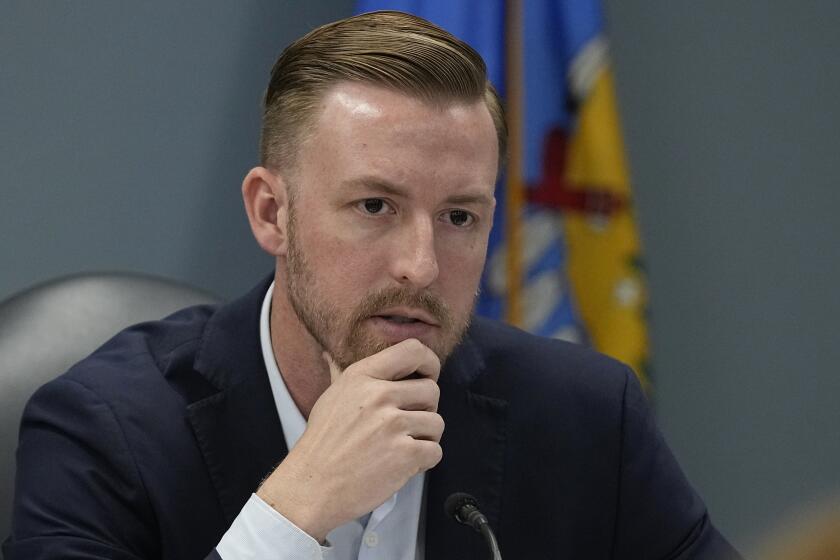Ruling revives lawsuit to allow state funding for special education to go to religious schools

- Share via
A 9th Circuit Court of Appeals panel revived a lawsuit this week filed by Orthodox Jewish families that sued California education officials over the state’s policy of refusing to fund special education programs at religious schools.
Two religious schools and three Orthodox Jewish parents whose children have autism filed the lawsuit against the California Department of Education and the Los Angeles Unified School District last year. The parents sought to send their children to Orthodox Jewish schools and argued that the state’s policy of barring funding for religious institutions was discriminatory.
Other states allow certain religious private schools to receive special education funding. For decades in California, those dollars have only been permitted to go to schools that are nonsectarian.
Judge Kim Wardlaw, writing for the panel, ruled that California’s requirement burdens the families’ free exercise of religion. The panel’s decision sends the case back for reconsideration to a federal court that had previously rejected it.
Attorney Eric Rassbach, who represents the families in the lawsuit, called the court’s decision a “massive win for Jewish families in California.”
The suit alleges that the mandate violates the Oklahoma Constitution because it involves spending public money to support religion.
“It was always wrong to cut Jewish kids off from getting disability benefits solely because they want to follow their faith. The court did the right thing by ruling against California’s bald-faced discrimination,” he said in a statement.
The California Department of Education argued in legal filings that by not certifying religious schools to educate children with disabilities, which would be required for them to receive federal funds, it was upholding the “principle that the government must be neutral toward and among religions.”
The California Department of Education declined to comment, citing pending litigation.
Funding for special education can be directed to a private school if a local school board determines, on an individual basis, that it would be the best way for a particular student with disabilities to receive an education, the department wrote in court papers.
Jewish UCLA students had sued the university, saying it failed to ensure they had full access to campus during pro-Palestinian encampments in the spring.
Attorneys for the California Department of Education wrote in court papers that the nonsectarian requirement was necessary because without it, local district officials would wield significant power to direct students to their favored religious institutions.
“This is the opposite of the government neutrality toward religion that the Constitution requires...” the department’s attorneys wrote.
However, Wardlaw wrote in her ruling that the state failed to show that its nonsectarian requirement is “narrowly tailored to serve” the interest of religious neutrality.
Wardlaw added that it puts parents in the position of being forced to choose between an education for their disabled children and religion.
“Parent Plaintiffs are required to choose between the special education benefits made available through public school enrollment (and subsequent referral to a private nonsectarian NPS) and education in an Orthodox Jewish setting,” she wrote.
A U.S. district judge last year dismissed the case and denied a request for a preliminary injunction to block the state from enforcing the rule.
Wardlaw affirmed the lower court’s decision to dismiss claims from Shalhevet High School and Samuel A. Fryer Yavneh Hebrew Academy because neither school could satisfy the requirements necessary to be certified to educate students with special needs, according to the decision.
Teach Coalition, a group that helps secure government funding for Jewish day schools, lauded the ruling as a major victory for religious liberty.
“This is a game changing moment for our community and for religious families of children with disabilities — not only requiring change in the state of California but holding nationwide implications,” Teach Coalition chief executive and founder Maury Litwack said in a statement.
More to Read
Sign up for Essential California
The most important California stories and recommendations in your inbox every morning.
You may occasionally receive promotional content from the Los Angeles Times.













